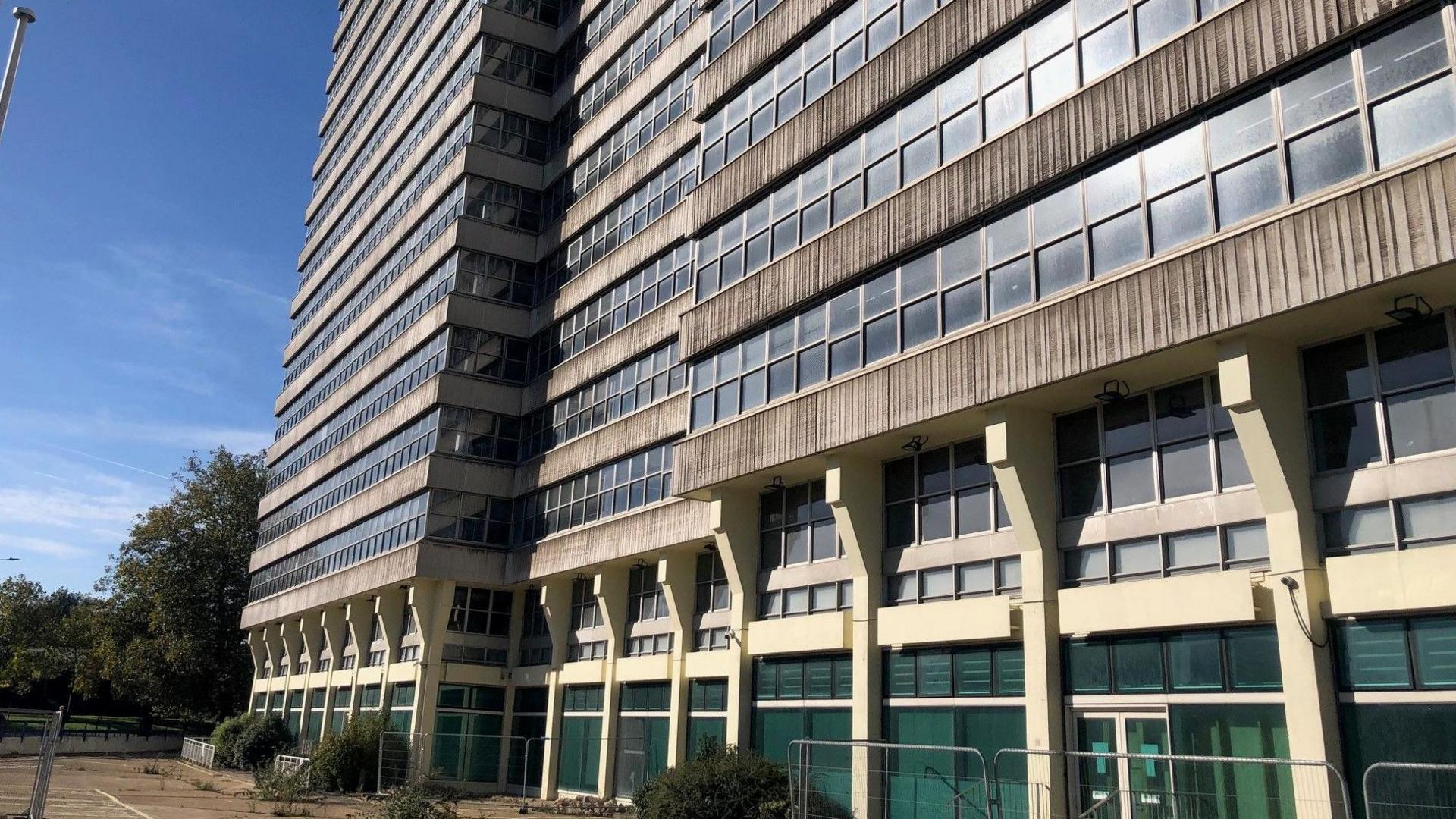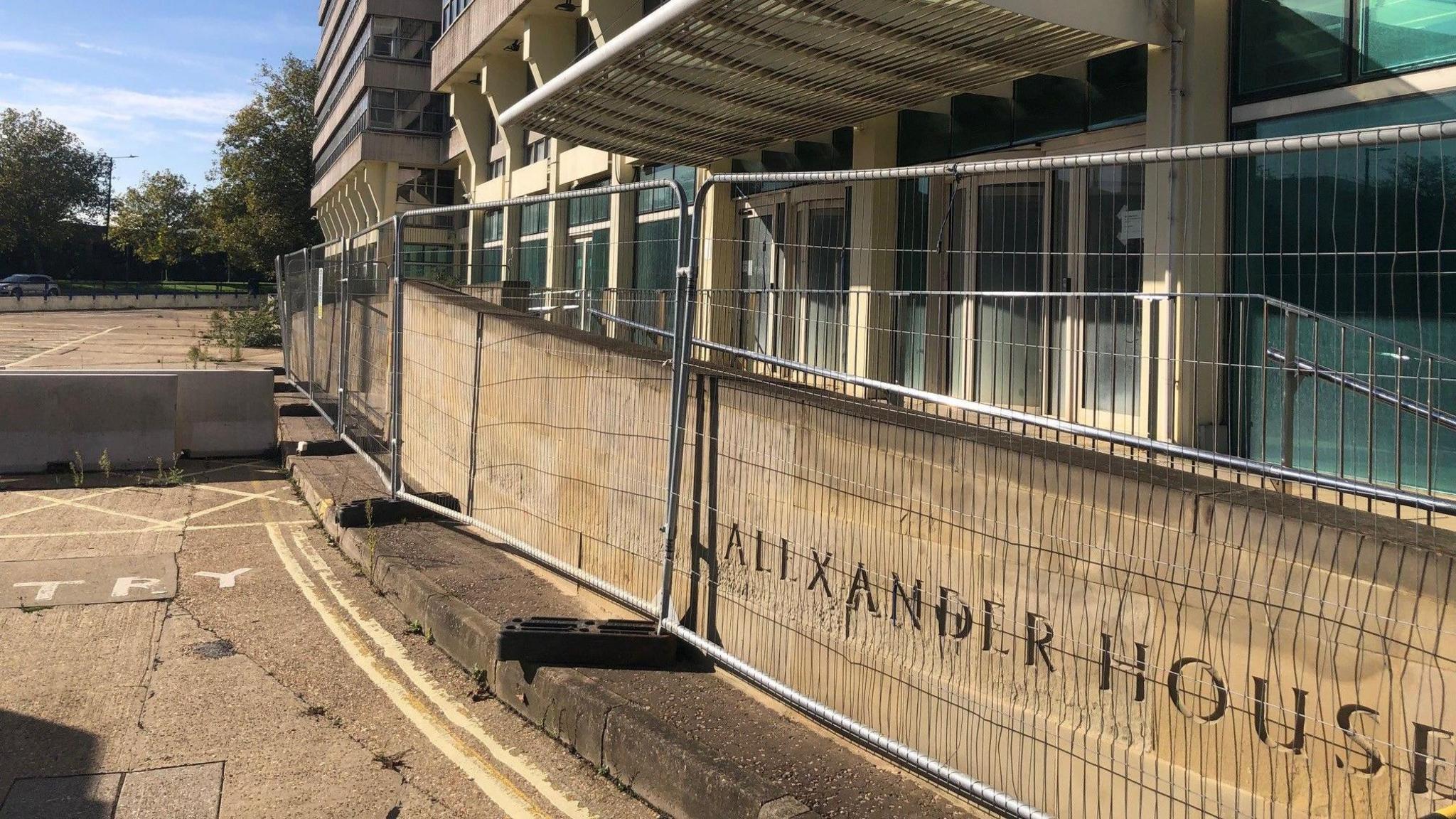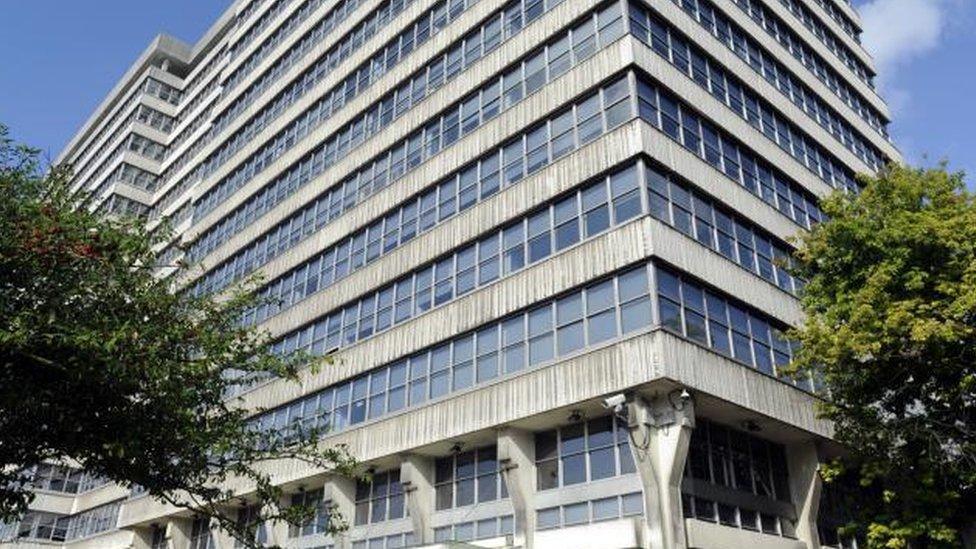Plan for new flats approved despite parking fears

Alexander House is a former HM Revenue and Customs building
- Published
Plans to turn an empty city centre office block into flats have been approved - despite worries it will not have enough parking spaces.
Members of Southend-on-Sea City Council's development control committee backed proposals to convert Alexander House - a former HM Revenue and Customs block - into homes.
There will be 557 flats, but only 299 parking spaces - just over 0.5 spaces per flat. One councillor was worried that might cause "parking stress" in nearby roads.
But planners decided there was enough parking because the block, in Victoria Avenue, was in a "sustainable location" and near public transport, according to the Local Democracy Reporting Service.
Richard Longstaff, a Green Party councillor for the Leigh ward, said Chelmsford was encouraging less car ownership in its planning strategy, and Southend should follow suit.
“Anywhere within an 800-metre zone of the central train station and bus station doesn’t need any parking," he said.
“Younger people are less likely to own a car, so I think it should be welcome that we are going down to 0.5 per dwelling.
“If we are going to mature and develop as a city, we need to be discouraging car use.
"We need to be focusing on public transport.”

Alexander House will have 557 flats, but just 299 parking spaces
Other former office blocks in Victoria Avenue have also been turned into flats with limited parking.
Kevin Buck, a Conservative councillor for the Prittlewell Ward, said it had put pressure on surrounding roads and council car parks.
He said: “We look at what’s happened to Victoria Avenue in general, and the surrounding roads are already suffering from parking stress.
"The problem is, it’s not going to stop people that move into these properties from buying and owning cars.
"We are engineering congestion into the city.
"We’re engineering in parking stress.”
Related topics
- Published3 October 2023

- Published4 July 2023
